Mumbai is India’s financial capital- a city that represents what this country best symbolises in terms of both diversity and dynamism. The reality, however, is that for all its sparkle and scurrying pedestrians in the high-rise buildings and swarming streets lies a relatively commonplace reality. There are so many areas in this very city that send many of its people to little, if any, places with proper Medicare. For some years now, NGOs have emerged as key agents to fill this gap by providing much-needed medical support to marginalised groups.
This article explains the role of NGO in Mumbai for Medical Help by focusing on initiatives, challenges, and the impact they have on many lives.
Overview of Healthcare Challenges
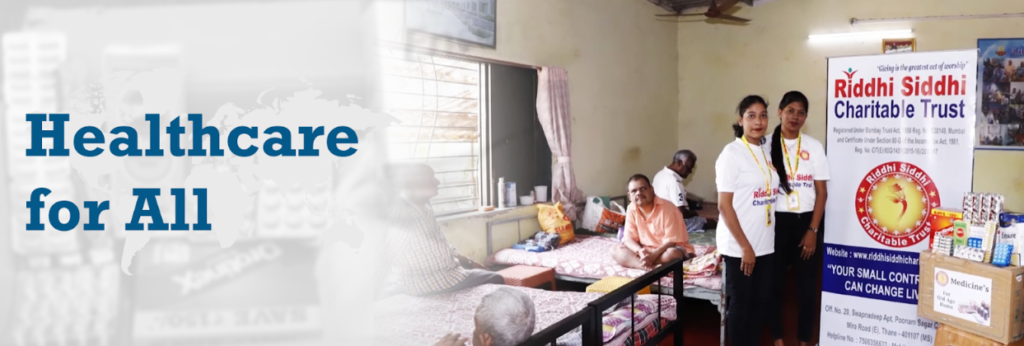
The health care system in Mumbai has a dual structure, with the robust private sector providing for those who can afford to seek care. In contrast, the public overextended industry cannot provide sufficient services to meet the needs of the low-income populations. Major challenges include:
- Public Hospital Overcrowding: Most public hospitals face overcrowding problems, with clients having to spend many hours in queues for less quality services.
- Low Access to Primary Care: This was primarily attributed to the fact that most low-income families lacked access to primary healthcare services. Thus, many illnesses are left unattended, and disease occurs emergently.
- High Out-of-Pocket Expenditure: For many, especially slum dwellers, healthcare services are expensive, and they can’t afford the cost and end up forgoing necessary treatments.
Role of NGOs
The services of NGOs have taken over the situation. NGOs provide a series of interventions that contain:
- Preventive Care: Health education and awareness programs focused on the promotion of healthy practices.
- Curative Services: Free or subsidised medical treatments for chronic and acute conditions.
- Mobile Health Units: Outreach services that bring health care directly to underserved communities.
Most influential NGO in Mumbai for Medical Help
Reliance Foundation
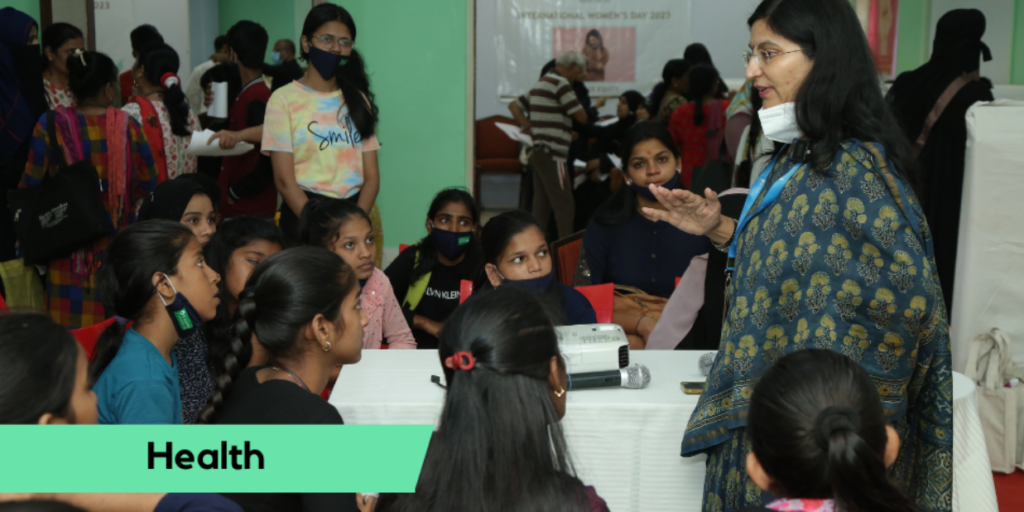
Overview: Reliance Foundation is one of the leading philanthropic organisations in India. It works towards various sectors, including health care. This foundation was formed by Reliance Industries Limited. Reliance Industries aims to deliver high-quality health care to poor and marginalised communities.
Activities:
- Health Camps: The foundation frequently runs health camps around Mumbai and does free consultancy work and treatments related to generalised diseases.
- Maternal and Child Health Programs: Reducing maternal and infant mortality is targeted through providing prenatal care and postnatal support.
- Ambulance Services: They have toll-free helplines and emergency mobile units equipped with emergency medical care.
Impact: Reliance Foundation has made an immense difference in the health outcomes of thousands of families in Mumbai, especially in slum areas, as access to healthcare is relatively scarce.
Website: https://reliancefoundation.org/
Tata Trusts
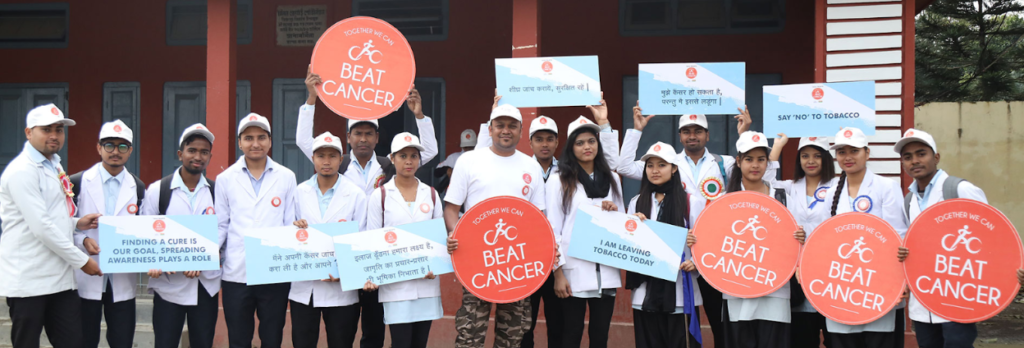
Overview: Tata Trusts is one of the oldest philanthropic organisations in India and has undertaken a legacy of social development initiatives. Its healthcare projects focus on expanding quality medical service accessibility among diverse strata.
Activities:
- Mobile Health Units: Tata Trusts run mobile clinics, which offer vital health care to remote areas.
- Community Health Education: It is given through conducting workshops and training on nutrition, sanitation, and how to prevent disease.
- Chronic Disease: The Trusts offer financial support to patients suffering from chronic diseases like cancer and diabetes.
Impact: The Tata Trusts have empowered the communities through improvements in health literacy and basic medical care, thus making positive impacts on health outcomes.
Website: https://www.tatatrusts.org/
Doctors For You (DFY)
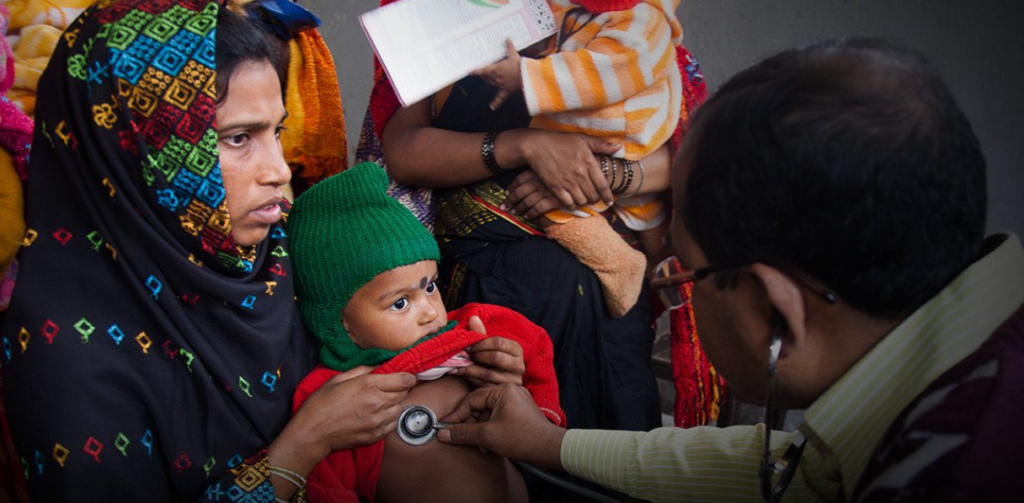
Overview: Doctors For You, a movement to offer medical care to deprived communities, was initiated in 2007 by doctors who believe in delivering health care to the deprived sections.
Activities:
- Health Camps: Regular health camps conducted by DFY involve free consultation and medicine dispensing and provide necessary referral services for advanced treatment.
- Mobile Clinics: These mobile clinics conduct regular rounds to slum-dwelling communities and rural populations with basic primary care.
- Daughter of Your Daughter is responding to disasters to provide medical facilities during natural catastrophes.
Impact: Thousands of members from the outreach initiatives have been empowered by DFY, and overall access to care has improved markedly for marginalised sections in Mumbai.
Website: https://doctorsforyou.org/
Nanhi Kali Foundation

Overview: This foundation empowers girl children primarily through education but also for health. A state of being that brings health is linked strongly with education.
Activities:
- Medical Support: This institution offers fund assistance for necessary surgeries and medication for girls whose family background is financially poor.
- Education Programmes: They hold hygienic, nutriment, and reproductive health training sessions to target adolescent girls specifically.
- Scholarship Programmes: These programmes help a girl maintain her education record so that her health issues do not hamper her education system.
Impact: Nanhi Kali has ensured that many girls get the needed medical care while pursuing their education.
Website: https://www.nanhikali.org/
Smile Foundation

Overview: Smile Foundation works to improve the healthcare of children in India. In Mumbai, it works to provide all health services to disadvantaged children.
Activities:
- Nutrition Programs: This foundation runs programs to tackle malnutrition issues among slum-dwelling children.
- Health Check-up Camps: It conducts regular health check-ups on children to observe their growth and development.
- Awareness Campaigns: They involve the community through campaigns on child health problems.
Impact: Smile Foundation’s health initiatives have been able to produce better health results among children of Mumbai slums, thus producing a healthier society in general.
Website: https://www.smilefoundationindia.org/mumbai
Indian Cancer Society (ICS)

Overview: The Indian Cancer Society is concerned with the prevention and control of cancer. In Mumbai, this society offers a lot of support to those patients who cannot afford their treatment.
Activities:
- Financial Support: ICS caters for the treatment procedure of economically weaker patients who have cancer.
- – Counselling Services: They offer mental counselling to cancer-affected patients and their families.
- – Awareness Programmes: ICS conducts awareness programmes regarding cancer prevention and its early detection procedures.
Impact: By reducing the cost burden that comes with treating cancer, ICS has opened up access to timely treatment, which in some cases may save lives.
Website: https://www.indiancancersociety.org/
Sightsavers India
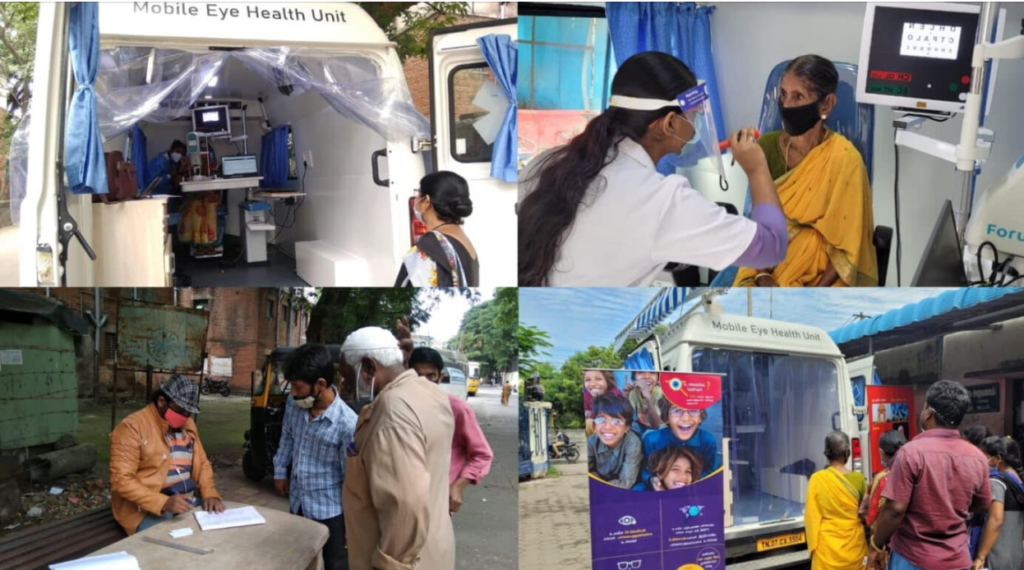
Overview: Sightsavers prevent blindness and advocate for eye health among disadvantaged populations. The efforts are very significant in tackling blindness and impaired vision that negatively affect the quality of life.
Activities:
- Eye Camps: Sightsavers conduct free eye camps, eye check-ups, surgery for cataracts, etc.
- Education and Awareness Campaigns: These create awareness of eye health among communities and emphasise the need to go for periodic eye checks.
- Rehabilitation Support: In the case of blind individuals, Sightsavers has rehabilitation support which enables them to live in the community
Impact: Sightsavers have really improved the eye health outcomes of marginalised communities in Mumbai through these interventions.
Website: https://www.sightsaversindia.org/
Challenges Confronting NGOs in Health Care Provision
Although NGOs contribute significantly to healthcare access enhancement, they encounter the following challenges:
- Funding Constraints: Most NGOs are donor-driven organisations. They mainly depend on individual donations or corporate sponsorships. Dependency on donors is volatile because the funding depends on the state of the economy or the donors’ changing priorities. Limited financing does not allow them to expand programs or maintain them in the long run.
- Regulatory Challenges: The process of navigating government regulations is complex for NGOs. Compliance with various laws requires resources that could otherwise be directed toward service delivery. In addition, bureaucratic delays can hinder timely intervention during health crises or emergencies.
- Awareness and Outreach: Despite all these, most people still do not know what NGOs have to offer. Outreach is critical in ensuring that the vulnerable understand how to access these resources. The challenge is quite pronounced in places like Mumbai, with a high population density, where it is hard to disseminate information.
- Workforce Challenges: Recruitment of professional staff for NGOs is very challenging, as NGOs have a small budget. Skilled people like doctors, nurses, and paramedical staff often look for private sector jobs which pay them well and are safer. It hampers the quality of services provided by the NGOs.
Impact of NGOs on Community Health Outcomes
The work of NGOs does not end there. They impact the health outcomes at the community level.
- Improved Access to Healthcare: The NGOs have managed to increase access to healthcare services among low-income families that would otherwise face barriers, whether in terms of cost or distance from facilities. In this case, they are offering free or subsidised care either in clinics or through mobile units so that essential services reach people in need.
- Enhanced Health Literacy: Through the promotional practices of hygiene, nutrition education, and disease awareness in preventive care, NGOs educate society on health matters that empower people to make responsible health choices. Such knowledge transfer not only promotes healthier behavioural responses but also encourages the community to hold meaningful public debates on health issues.
- Policy Change Advocacy: Advocating for health access-related public policies is an essential activity by most NGOs. The representation of voiceless individuals, either at local or national levels, in policy dialogues, through research articles, and others contributes to developing more representative health policies that alleviate systemic inequalities of the vulnerable group.
- Empowered Community Resilience: Building capacity at the local level through training programs or partnering with community leaders—NGOs strengthen resilience within communities experiencing health crises, such as pandemics. Empowered communities are well positioned not only to respond but also to demand their rights to equitable access to quality care.
Future NGO Strategies in Mumbai’s Healthcare
Looking ahead—there are many strategies that will strengthen the hand of NGOs working in the complex Mumbai healthcare environment:
- Strengthening Collaborations: Building partnerships among various stakeholders, such as government agencies and private sector organisations, can boost the collective impact in different sectors, such as education and sanitation. Shared resources and expertise under joint initiatives can lead to better service delivery outcomes while simultaneously taking care of other social determinants that impact health equity.
- Embracing Technology: Integrating technology into service delivery models offers opportunities to streamline operations and enhance outreach efforts (e.g., telemedicine platforms). The use of data analytics tools can also facilitate a better understanding of community needs and inform targeted interventions based on evidence-based practice, which can ultimately lead to improved patient outcomes over time!
- Focus on Mental Health: Given rising mental health concerns exacerbated by socio-economic challenges—NGOs must prioritise mental well-being alongside physical health initiatives! Integrating mental health support into existing programs will ensure holistic approaches addressing both aspects, simultaneously fostering overall wellness within the communities served!
The landscape of healthcare in Mumbai reflects both remarkable progress and significant challenges faced by its diverse population! NGOs in Mumbai have emerged as vital players in bridging gaps and ensuring equitable access to essential medical help for underserved communities! Through innovative approaches, community engagement, and advocacy efforts, contributions extend far beyond individual patient care and impact broader public health goals!
As we move forward, it becomes essential to support these organisations, whether through donations, time volunteering, or skills! Collaboration between governmental bodies and NGOs will be key, creating more equitable systems serving every citizen effectively! Together, we can strive toward building healthier futures where everyone enjoys the right quality, affordable, accessible healthcare, regardless of background or circumstances!
Leave a Reply